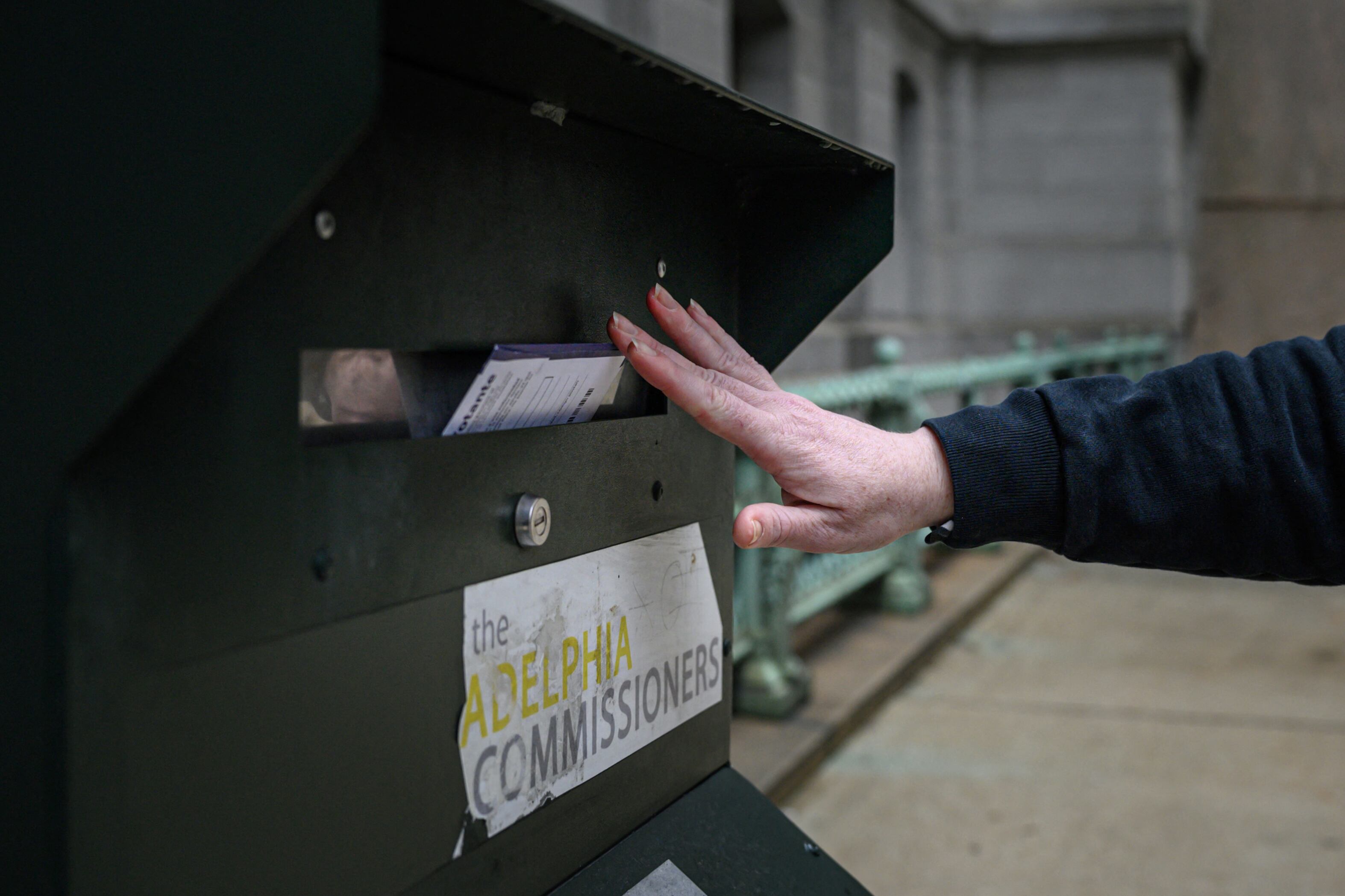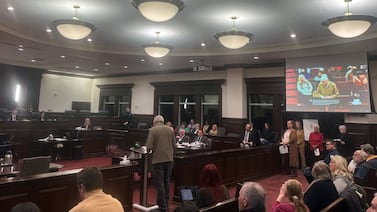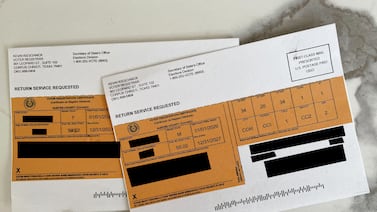Votebeat is a nonprofit news organization reporting on voting access and election administration across the U.S. Sign up for our free newsletters here.
After a court defeat last month, Pennsylvania voting rights organizations are trying to convince a larger group of federal appellate judges that the state shouldn’t be allowed to reject mail ballots that lack a proper date on their return envelopes.
The plaintiffs, led by the NAACP, are appealing a March 27 ruling from a three-judge panel of the 3rd U.S. Circuit Court of Appeals and are seeking an opinion from the full court. A favorable outcome for the NAACP could prevent thousands of mail ballots from going uncounted this November, but it would not happen in time for the April 23 primary, the plaintiffs’ lawyers said.
The panel’s 2-1 ruling found that a Pennsylvania law requiring mail voters to handwrite a date on the return envelope did not violate a provision of the 1964 Civil Rights Act that’s meant to protect voters from being disenfranchised.
Marian Schneider, senior voting rights policy counsel at the ACLU of Pennsylvania, which is representing the plaintiffs, said the appeals court panel got the case wrong by narrowly interpreting the federal statute at issue as applying only to the voter registration process.
“It cannot be that Congress meant for it to apply only to registration,” she said “Because the absurdity of that result is that you have people apply to register, but then after you register them, you can disenfranchise them for some immaterial errors.”
Roughly 8,000 ballots were rejected during the 2022 midterm election for lacking a proper date or signature on the outer return envelope, according to the Pennsylvania Department of State.
A Votebeat and Spotlight PA analysis of data from three counties in 2022 found voters submitting the flawed ballots were more likely to come from communities with higher than average non-white populations compared with the overall voting population in the county. The department said that in last November’s election, the dating issue accounted for roughly 2,500 rejections.
At issue in the case was a provision of the Civil Rights Act known as the “materiality provision,” which says a person cannot be denied the right to vote because of “an error or omission on any record or paper relating to any application, registration, or other act requisite to voting,” if that error isn’t material to determining a voter’s eligibility.
Although a U.S. District Court judge ruled in November that Pennsylvania’s dating requirement violated that provision, the 3rd Circuit panel overturned that decision, with the majority writing that the materiality provision is limited to documents related to a voter registering to vote.
“It does not preempt state requirements on how qualified voters may cast a valid ballot, regardless what (if any) purpose those rules serve,” the opinion read.
Schneider said this interpretation invalidates the “or other act requisite to voting” part of the provision, and violates a “cardinal rule” that courts interpreting a law must “give meaning to all parts of a statute.”
The circuit court does not automatically have to grant the appeal, but some factors may weigh in the NAACP’s favor.
First, a separate three-judge panel of the court ruled the opposite way in a previous case, although the Supreme Court eventually nullified that ruling as no longer relevant. That case, a 2021 suit out of Lehigh County, also challenged the dating requirement, citing the Civil Rights Act’s materiality provision.
Additionally, the 3rd Circuit — which covers Pennsylvania, New Jersey, Delaware, and the U.S. Virgin Islands — may decide to take the case because it is a matter of national significance, Schneider said, and because other circuit courts have similar issues pending before them.
The 11th Circuit, which covers Florida, Georgia, and Alabama, has a case before it dealing with whether voters in Georgia should be required to write their birthdate on the outer ballot envelope, or whether that violates the materiality provision.
The 5th Circuit, which covers Texas, Louisiana, and Mississippi, also has a pending case dealing with the provision. In that case, plaintiffs are challenging a Texas law that requires voters to write their voter ID number on their mail ballot.
If the 3rd Circuit decides to rehear the case, there could still be more challenges ahead.
A ruling overturning the three-judge panel’s opinion would give Republicans intervening in the case the option of appealing to the U.S. Supreme Court, which they have signaled they may do. And if the circuit courts split on the larger materiality issue, the Supreme Court would be more likely to take the case.
An appeal to the U.S. Supreme Court might not be a favorable scenario for those looking to invalidate the dating requirement. Derek Muller, an election law professor at Notre Dame Law School, previously noted that when the Lehigh case made its way to the Supreme Court and was nullified, three of the court’s nine justices “sketched out a preliminary position” against the NAACP.
The NAACP could also appeal to the Supreme Court, in the event of another defeat in the 3rd Circuit.
“We’re going to have to cross that bridge when we get to it,” Schneider said. “It’s premature … but I’m trying to think optimistically.”
Carter Walker is a reporter for Votebeat in partnership with Spotlight PA. Contact Carter at cwalker@votebeat.org.



